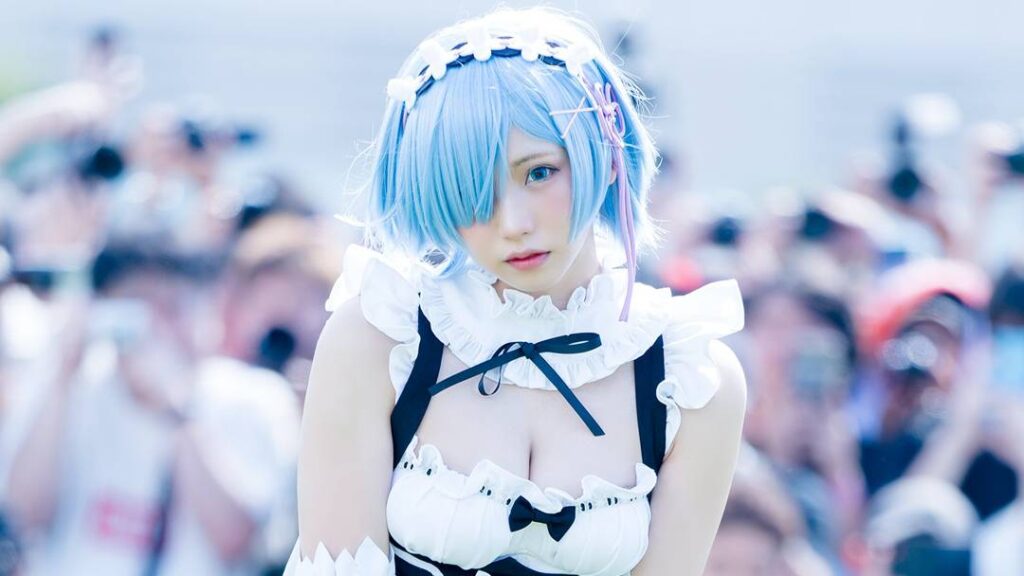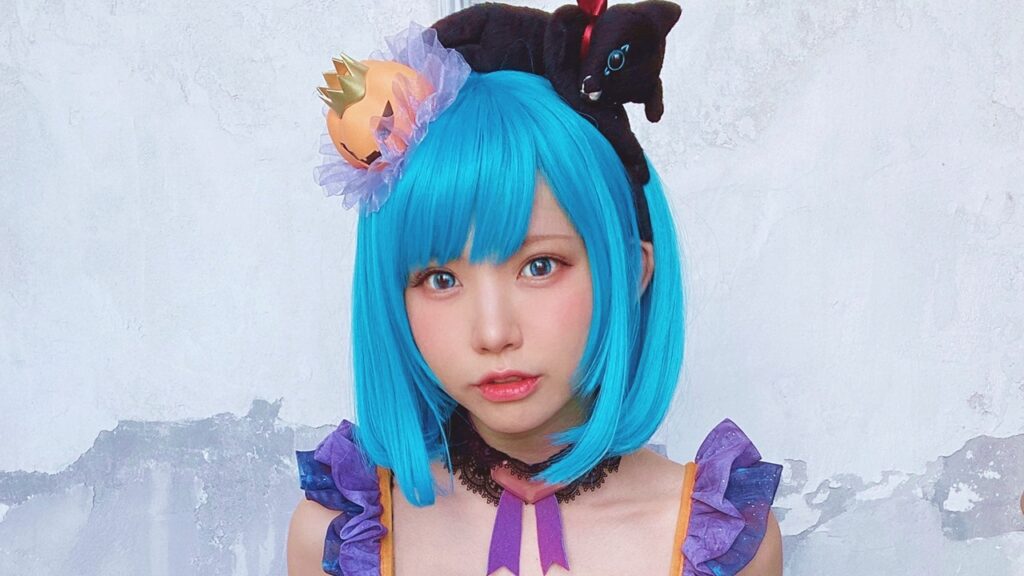Enako, one of Japan’s most recognized cosplayers, has taken to her Twitter account to express her discomfort with an emerging trend on social media related to artificial intelligence (AI). Without getting into deep ethical questions about the technology, Enako has expressed her displeasure at certain comments that, instead of praising her work, suggest that her photos look like they were generated by AI. This trend of comparing photographs of real people to artificial images has grown, especially in the realm of digital art and cosplay, generating a mixture of praise and annoyance for creators like her.
The famous cosplayer commented that she does not consider it a compliment to be compared to AI-generated images, adding, “I feel uncomfortable when AI devours my photos and then mass-produces images that look like me; saying ‘you look like AI’ is not a compliment at all.” This response from Enako comes in a context where AI technology has advanced by leaps and bounds, producing images that are hyper-realistic and, in many cases, indistinguishable from the real thing.

The impact of AI on the recognition of authenticity.
Enako’s situation raises an important reflection on how the advancement of AI is affecting the perception of authenticity in art and creativity. With the rise of generative AI, digitally produced images have become extremely realistic, generating confusion about what is authentic and what is not. This is especially relevant for cosplayers, photographers and other visual creators, whose work is affected when their effort and dedication are equated with that of an algorithm.
Although Enako does not directly address the issue of copyright or ethics in the use of AI, her unease reflects the growing concern among creators about how AI is transforming the perception of art. With her statements, Enako evidences the unease of those who feel that their work could be diluted or, worse, trivialized in the face of AI’s ability to replicate and produce similar images in large volumes.
You could like: Revelation Imminent! John Wick Prequel Will Unveil Major Mystery
A problem that also affects other sectors
Enako’s case is not unique. Recently, the U.S. actors’ union, SAG-AFTRA, went on strike after failing to reach an agreement on the use of AI in the entertainment industry, specifically in video games. The discussion in that sector revolves around the consent and compensation of actors, who also feel that their identity and job are at risk in the face of digital replicas and the creation of synthetic performances through AI. Although Enako does not address these types of issues explicitly, the constant comparison of her image to AI points to a similar problem: the concern of being supplanted or reduced in value by images produced by artificial intelligence.
The reality behind the comments: is it really praise?
The comments Enako has received such as “you look like AI” or “it’s amazing how AI-like you are” reflect not only the public’s perception of digital images, but also the shift in standards of beauty and realism driven by technology. On social media, users have shared opinions such as “Enako is much prettier than anything generated by AI” or “The use of AI in the gravure industry is a problem, the authentic has irreplaceable value”, highlighting that, for many, genuine images are still superior to artificially produced ones.
These comments show that the public continues to value the human factor, although at the same time they evidence a lack of understanding of the effort involved in the work of a professional cosplayer like Enako. The comparison of a real person with AI can be interpreted as a lack of recognition of the skills and dedication of the creator, who in this case invests hours in elaborate costumes, makeup and poses that accurately reflect the characters she plays.

Reflection on the future of AI in content creation.
The situation raised by Enako leads one to consider the future of AI and its influence on public perception of authenticity. With increasing access to tools that allow anyone to create hyper-realistic images, the question arises as to whether, eventually, authenticity will be something that takes a back seat to artificial perfection. This trend could continue to affect creators like Enako, who see cosplay as a form of art and expression that goes beyond a simple image.
Likewise, the need to develop regulations and agreements that regulate the use of AI in content creation is becoming increasingly evident. While Enako has not spoken out directly on these issues, her discomfort with the comparison suggests that the impact of AI on art and entertainment is a complex and sensitive issue for many creators, who want their work and authenticity to be fairly valued.
The value of the human in a digital world
In an environment where AI is advancing rapidly and seems to blur the boundaries between the real and the artificial, Enako’s words highlight the importance of recognizing and valuing the human work behind each creation. The comparison to AI may be seen as praise to some, but for creators like Enako, whose image and dedication are central to their work, such comments may be offensive and reduce their efforts to a simple technological similarity.
In the end, Enako’s statement not only invites her followers to reflect on the value of the authentic, but also to appreciate the art and human effort that remains irreplaceable, even in an age increasingly dominated by the digital.
